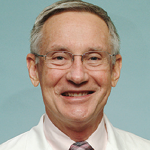“These conversations can be difficult,” Dr. Babu said. “They may require having to tell the person who hired you or your mentor that they shouldn’t operate anymore.” She advises the individual in authority to start such a conversation by emphasizing the surgeon’s strengths, which demonstrates respect and shows that you recognize and appreciate their value. Then, go on to say that you’re getting pressure from the hospital system, patient safety committee, or whomever, about the need for them to stop operating.
Explore This Issue
August 2018Then, if at all possible, offer them alternatives to continue working if they choose to do so. “Tell them that their benefit is much broader than the operating room, and that you want to harness their ability and talent, but that you must be sensitive to safety issues,” Dr. Babu said. “Don’t simply tell them that they need to relinquish their keys, and that they’re done.”
Other Options for Surgeons
Many options remain for otolaryngology surgeons looking to keep working but in a different capacity, such as performing less complex surgical procedures, assisting others in the operating room, teaching in and out of the surgical suite, and working in a medical practice assessing patients for surgery.
“I think our specialty makes it possible to transition from surgical to non-surgical work,” Dr. Chole said. “You can still have a successful medical practice without doing surgery.”
Karen Appold is a freelance medical writer in Pennsylvania.
Key Points
- Older physicians may have cognitive and physical declines, and may be less familiar with newer technologies.
- Older surgeons should undergo regular periodic testing of their cognitive and physical abilities.
- Colleagues and coworkers are a valuable resource for identifying surgeons who display initial signs of professional deterioration.
Why Two Surgeons Lightened Their Loads
 Although Richard A. Chole, MD, PhD, professor in the department of otolaryngology at the Washington University School of Medicine in St. Louis, Mo., believes he is a better surgeon now than he ever was, he decided he would stop performing surgery later this year at age 74. “I want to leave my practice before my boss asks to me leave,” he quipped. “I decided to retire at this age a while ago, even though I haven’t had problems. I have been in medical leadership for over 30 years, and have seen issues with aging surgeons.”
Although Richard A. Chole, MD, PhD, professor in the department of otolaryngology at the Washington University School of Medicine in St. Louis, Mo., believes he is a better surgeon now than he ever was, he decided he would stop performing surgery later this year at age 74. “I want to leave my practice before my boss asks to me leave,” he quipped. “I decided to retire at this age a while ago, even though I haven’t had problems. I have been in medical leadership for over 30 years, and have seen issues with aging surgeons.”
But Dr. Chole won’t retire completely. He plans to work part-time by supervising the resident’s clinic for indigenous patients. “This will be a good transition position,” he said.